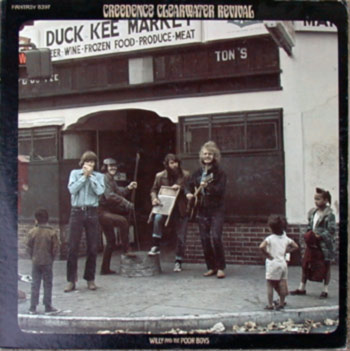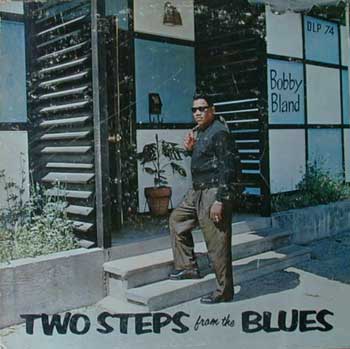
It’s amazing to me how particular sounds have such a strong emotional effect on me. For instance, I still can’t hear the sound of a helicopter flying overhead without getting a sick feeling in my stomache and without ducking, no matter where the incident might take place.
Although I’ve developed a taste for Chinese cuisine, even Vietnamese, I still refuse to go to a Vietnamese restaurant because the sound of Vietnamese being spoken in the background affects me so strongly. There’s nothing more gut-wrenching than having your radio frequencies jammed at night with Vietnamese when your out in the jungle.
Maybe it’s not too strange, then, that when it comes to strong memories or feelings I almost always think of music. Maybe I’ve just seen one too many movies, but there it is. I measure my life and its emotions as much in songs as I do in stories or events
Fortunate Son
Some folks are born made to wave the flag,
Ooh, they’re red, white and blue.
And when the band plays "Hail to the chief",
Ooh, they point the cannon at you, Lord.
It ain’t me, it ain’t me,
I ain’t no senator’s son, son.
It ain’t me, it ain’t me;
I ain’t no fortunate one, no.
Some folks are born silver spoon in hand,
Lord, don’t they help themselves, oh.
But when the taxman comes to the door,
Lord, the house looks like a rummage sale, yeah.
It ain’t me, it ain’t me,
I ain’t no millionaire’s son, no, no.
It ain’t me, it ain’t me;
I ain’t no fortunate one, no.
Some folks inherit star-spangled eyes,
Ooh, they send you down to war, Lord,
And when you ask them, "How much should we give?"
Ooh, they only answer More! more! more!
It ain’t me, it ain’t me,
I ain’t no military son, son.
It ain’t me, it ain’t me;
I ain’t no fortunate one.
It ain’t me, it ain’t me,
I ain’t no fortunate one, no no no,
It ain’t me, it ain’t me,
I ain’t no fortunate son, lord no no
It ain’t me, it ain’t me.
Creedance Clearwater Revival from Willy and the Poor Boys
Considering my personal experiences in Vietnam, perhaps it’s not surprising that my favorite protest song is “Fortunate Son” by Creedance Clearwater Revival. I never joined the protests against the war after I got out of the Army out of deference to my friends who were still fighting there, but I never supported the war and to this day I still resent the rich Republican son-of-a-bitches who advocate war but who hid in the National Guard or Army Reserves while the rest of us did their fighting for them.
Now, lest you think that I was somehow retarded or overly patriotic (Isn’t that a redundancy?), I had joined R.O.T.C. years before in the naive belief that in a democracy everyone owed an obligation to their nation to serve. Besides, I had never even heard of Vietnam when I joined.
My unit was one of the first Armor units sent to Vietnam, so we got the top officers from Fort Knox to fill the empty officer slots. It was considered quite a coup to get combat duty in Vietnam because it was considered crucial to later promotions. Oh, lucky me, I thought, I who had never in this life time considered a career in the Army.
Before my unit was sent to Vietnam we drafted men from southern California to fill the unit up, trained them for six months, and took them off to fight. My platoon ended up with three whites in it: myself, my platoon sergeant, and an E5 from Canada. All the rest of the men were either blacks or Hispanic. Now, I know there were a lot of minorities in southern California, but statistically there’s no way that draft could have been handled fairly. There must have been a hell of a lot of colleges in California to hide in, or a draft board composed of middle-age whites who thought they needed to keep the white boys home to protect the home front.
Hell, I didn’t even think much of it then. I was much too busy trying to get these 18 year-olds ready for combat and trying to teach them enough to keep themselves, and me, alive. By the time I was relieved of my command in Vietnam I would have died trying to save each and every one of them. For a short time, I was closer to them than I have ever been to anyone in my life.
I even volunteered to extend my tour of duty in Vietnam so that I could stay with them until they, too, finished their tour of duty. When told that I would be assigned to duty in Saigon instead of staying with my unit, I quickly dropped that idea. The war meant nothing to me, but my men meant everything.
That tour of duty in Vietnam changed me in more ways than I could ever explain, probably for the better and for the worst, but I have never, unless for a moment or two, regretted it.<
Let me just say that I don’t have “star-spangled eyes,” and it would take a hell of a lot more than a cannon pointed at me to make me sing ”Hail to the Chief,” particularly if it were a Republican Chief.

